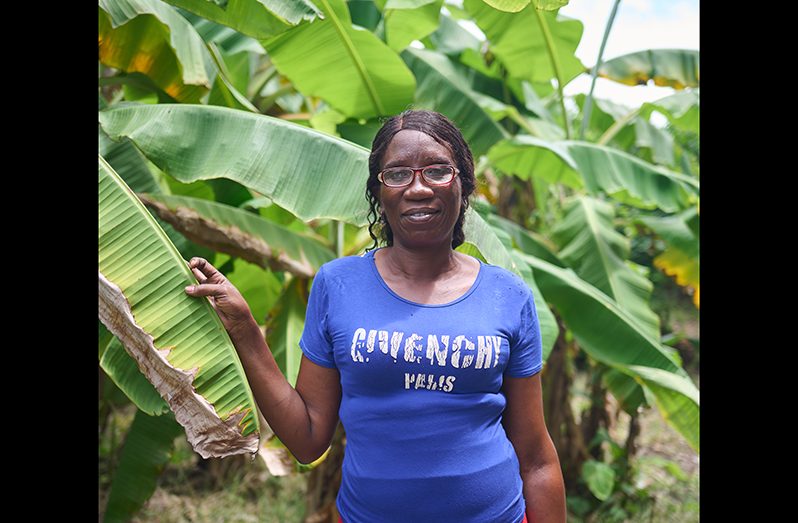With unwavering determination, a single mother continues her husband’s agricultural dreams
NOT many picture Crane’s waterside when thinking of a dam, and even fewer imagine its hidden beauty. Tucked away behind the village of Crane, far from prying eyes, lies a beautiful farm with an impressive woman at its helm. Picking up the pieces of her family after the death of her husband, Dionne James found her salvation on the farm. Although she knew very little about the challenging intricacies of agriculture, she decided to undertake the venture to send her youngest child to school. Today, more than a year later, Dionne has made significant strides. Although she is not quite there yet, she says farming has become her way of getting by.
Life is as unpredictable as it is beautiful. This is how Dionne James’s life can be described. Moving to Crane, she had what most would consider the blueprint for a happy family. Married with three children and a booming agricultural business, her family was picturesque. As she recounts the family’s earlier years living in Crane, she shares, “I was living in front at first, but I moved onto the farm a couple of years ago when my husband died. He was a farmer, and I am still farming now to send my last daughter to school. She is 12 years old.” Today, she runs the farm with the same enthusiasm she had alongside her husband. However, challenges persist. She is determined to continue for the development of the farm and the greater good of her family.

Dionne’s home, several miles from the beginning of Crane, is one of the most beautiful aspects of the community. Her little plot is made even more captivating by her dozens of cherry trees in full bloom. Her home is as close to the water’s edge as possible. Interestingly, however, Dionne claims that the area is not prone to floods and makes for a good agricultural plot. When visited by the Pepperpot Magazine, Dionne was harvesting her hundreds of cherries from her dozens of plants. As she shared, “I am reaping right now, and I have mostly cherries and some bananas. Right now, I am not getting as much as I used to.”
Farming has changed along with life, says Dionne. Before losing her husband, the pair were greatly invested in the expansive planting of various crops, especially Dionne’s husband. As she explained, this proved to be a good business for many years, with him planting and her selling the couple’s produce. “I started farming with my husband. We farmed mostly plantains and used to get a good crop at that time. We had a good business; we would sell wholesale, and I would walk and sell.” Although she started agriculture alongside him just over a year ago, Dionne decided to continue with what he had taught her.
Agriculture is a new venture for the mother of three. Most of her jobs consisted of things outside of farming, and even when she was involved in agriculture, it was primarily the business aspect. However, she is no stranger to hard work. She shared that raising a family of three children required a lot, even with the help of her husband. “I used to work two jobs, one at night and another during the day. My husband would stay home, farm, and look after our daughter, sending her to school and so on,” she said. Today, Dionne multitasks like many women, being both mother and provider. She outlined her day: waking up early to tend to the farm, getting her daughter to school, and doing it all over again the next day.
These are not the only difficulties she has seen. Irrigation is the biggest hurdle for any good farmer, much less an inexperienced Dionne. Although the land they occupy neighbours a water source, the water is highly salty and causes harm to some of the more water-dependent crops. As Dionne explained, “One of the challenges I was having was water. When I first came here, we did not have water. At first, we used the trench water, but that got salty. So we could not plant things like celery and tomatoes because those things always need water. We plant long crops now, these crops like cherries, okra, and plantains that do not need water all the time.”
Coping with the loss of anyone requires great strength and conditioning. However, losing someone who was the family’s foundation takes much more from the human spirit. Although she is still facing challenges with irrigation, financing, and getting her crops from farm to market, Dionne remains positive. As she stated, “For me, it is difficult as a single parent. But I would say that for now, the agriculture is doing okay because my head is still above water.”












